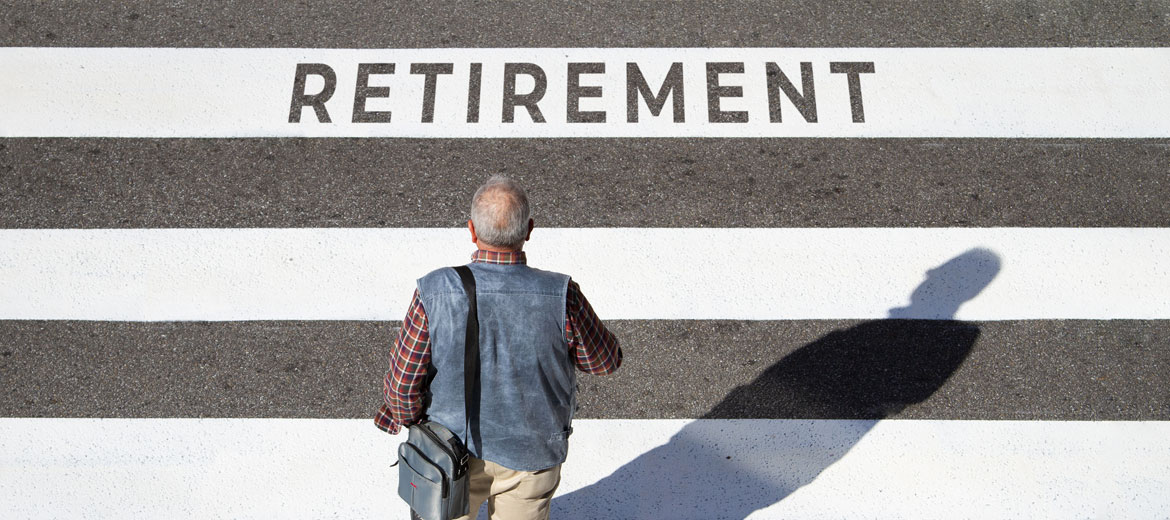5 Tips for Retiring in a Recession
You want to retire soon, but you see energy prices fluctuating, an unstable stock market, and interest rates rising. Is it safe to retire now or should you wait? In this blog, we will discuss some measures you can take to keep volatile economic conditions from hindering your retirement plans.
1. Should you retire or wait?
One key thing to consider is that recessions typically do not last very long, more on that in a minute. So, you could wait it out if you feel you would be better off.
Admittedly, there is no right or wrong answer to this question, and it depends entirely upon your current circumstances. Some of us may be fully suited to retire during a recession and feel no real impact. But for the rest of us, we have a few more things to consider.
A part-time job could reduce the amount of withdraws against your retirement funds. Leaving a larger balance for when the market bounces back.
This could be an opportunity for you to take your favorite hobby to a new level and start producing an income from that hobby.
If you enjoy writing, you could use your expertise in a particular field to write blogs or tech documents about a specific subject that is of interest to others. Some companies are looking for retirees to help train incoming workers.
2. Is it a bad idea to retire during a recession?
Recessions come and go like the tides. Thankfully, not as often. There are ways to survive retirement during a recession. People have been doing it for decades. You really need to assess your situation. If you 401k has taken a large hit, you may not want to draw from it until it has had a chance to recuperate.
As mentioned earlier, you may want to consider a part-time job to offset the amount you withdraw from your 401k.
Another good idea would be to consider putting some of your money into stocks that are at a low but have a stable track record of bouncing back. These could turn into substantial windfalls once the recession has passed.
3. What are the risks of retiring in a recession?
Retiring in an economic slump can put an unnecessary burden on your retirement savings while they are at a low point. Tapping into these resources will only delete your retirement savings even quicker.
In the interim, your living expenses are probably not going down. In fact, they are probably rising. If you haven’t already done so, you might consider downsizing your home or reducing your monthly expenses. Cutting out unnecessary spending (impulse purchases) is something to consider as well.
4. How long does a typical recession last?
Recessions tend to be short by nature. Most of the US recessions have only lasted a few months, while some have spanned a couple of years. However, the effects of a recession may linger much longer. Even though a recession has ended according to the Federal Reserve, and the economy is staggering its way upwards, it can take a while to fully recover.
5. Mitigating the risks.
In the following 4 sections, we will discuss some tactical plans you may want to consider and implement before retiring.
a. Keep your retirement date flexible.
Don’t commit to a specific date just yet. Think about the circumstances you’re in and try to be flexible with your retirement date. If you’re not able to continue in your current job, consider working part-time to bridge that gap between working full-time and full-time retirement.
b. Reassess your portfolio.
Look at your current 401k investments and reassess your portfolio to include more stable investments. Reduce the amount of investment you have in higher-risk stocks.
This doesn’t mean that you must drop all high-risk/high-return stocks. You can keep some for longer term gains that you won't access for at least 10 years.
c. Reduce your living expenses.
Lowering you living expenses will help you weather a recession, and it could position you to better handle any financial setbacks that may arise during your retirement. Read the section “Final Thoughts” below for more information on that.
d. Delaying Social Security
Your monthly Social Security benefit amount increases by approximately 8% per year between the ages of 62 and 70. Waiting to start your Social Security benefits can provide you with a larger stream of income for the rest of your life.
Final Thoughts
Before you take that plunge and retire, there are some other things that you should consider. A major one that most people over-look is the age of their home, appliances, vehicles, lawn equipment, etc. You may want to consider upgrading, repairing, or replacing these items prior to your retirement.
If you want to learn more about your retirement monthly amount or general information about your retirement, you can visit the Social Security website: www.ssa.gov/estimator/.
Fort Sill Natioinal Bank can help you plan for retirement by helping you pick a Certificate of Deposit with the term that best suits your financial situation. You can print and complete a New Customer Information Sheet here and click "Submit" or print a copy and bring it to any FSNB branch to open your account today.
Disclaimer: The information posted on blogs and vlogs by Fort Sill National Bank is for educational and entertainment purposes only and is not intended as a substitute for professional or legal advice. Fort Sill National Bank will not be held liable for any loss or damage of any kind in connection with this blog.

